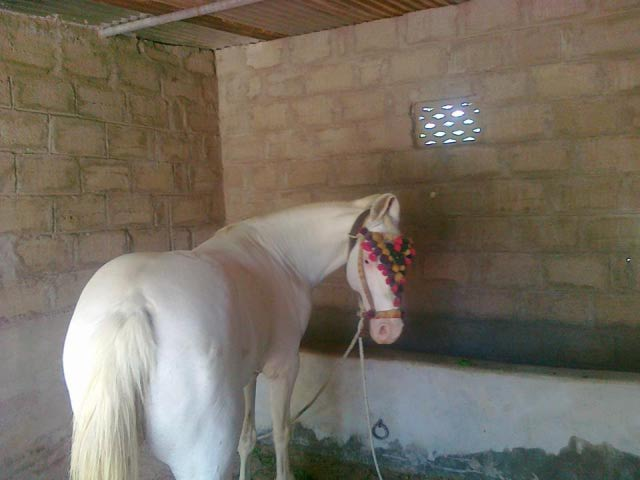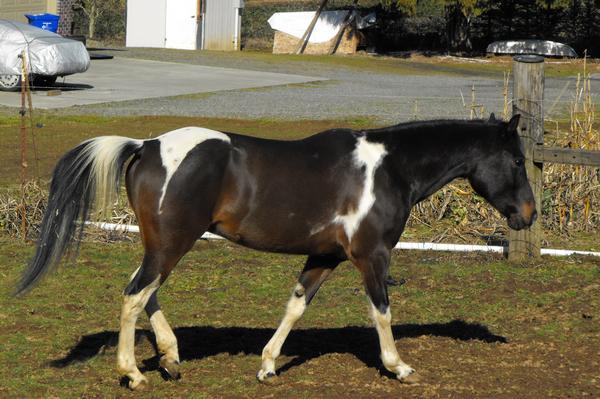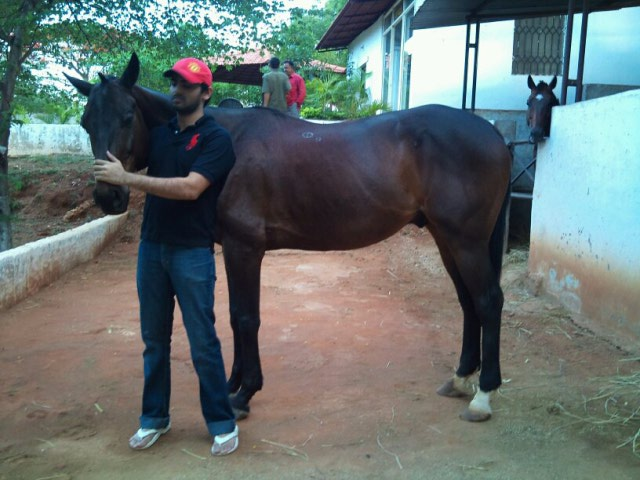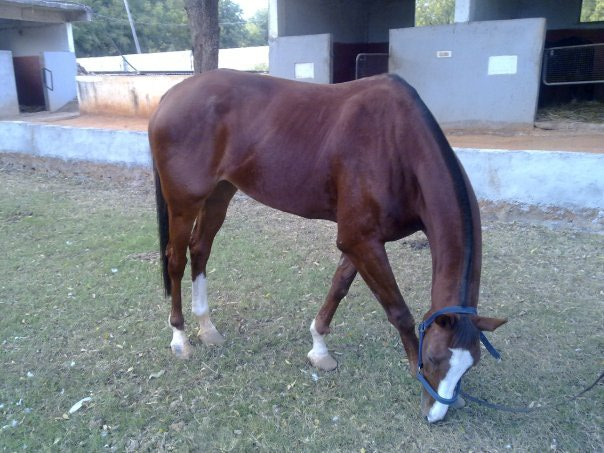Questionhello ma'am. do horses suffer from acidity? actually, i am suffering it after eating mangoes....lol. ma'am, if they are suffering how can i detect that? how to keep their stomachs cool especially in hot climates?
AnswerHi Rohit,
Thank you for your question. Horse's suffer from trouble with high acidity levels in 2 different parts of their digestive systems.
The stomach is susceptible to developing ulcers from acid build up. Horses secret digestive enzymes into their stomachs 24 hours a day, regardless of whether or not they have digesta in the stomach. If the stomach remains empty for long periods of time (more than 4 hours) without food in it, the acidic digestive enzymes build up in the stomach and begin to erode the upper (more sensitive) portion of the stomach lining. The best way of preventing ulcers from developing is to ensure that the horse always has access to forage (pasture or hay) which will soak up the enzymes and put them to work preventing ulcer build up. Stress can induce an increased rate of enzyme secretion into the horse's stomach, as can prolonged elevated blood histamine levels. In these cases, management procedures that minimize stress and keep horses from being exposed to histamine producing substances can prevent ulcer development. Horses with ulcers will often show considerable discomfort while eating and may appear aggressive at feeding time or become restless or agitated while eating. The true diagnosis for ulcers would have to inlcude and endoscopic examination of the stomach. Feeding sodium bicarbonate at 6-8 teaspoons per day can help relieve acidity in the stomach but this should be a short term solution that needs to be followed by a long term feeding management change.
Horses can also develop cecal acidosis as a result of bacterial fermentation of sugar/starch in the cecum and/or the destruction of forage fermenting bacteria. The clinical signs of cecal acidosis are a little slower to present...but include listless/depressed attitude, weight loss/inappetance and sometimes poor hoof condition. You can help eliminate/reduce cecal acidosis by ensuring that starch-based feeds don't make it to the hindgut (feed grain in small amounts) and by adding yeast to the diet (which will help keep the forage digesting bacteria healthy).
I hope that helps.
Thanks, Corlena

 fully conditioned
Question
fully conditioned
hello maam. is this h
fully conditioned
Question
fully conditioned
hello maam. is this h
 My new draft horse.....
Question
Bubbs Gentle Giant
I have just pu
My new draft horse.....
Question
Bubbs Gentle Giant
I have just pu
 loss of appetite
QuestionElliott
QUESTION: i have a question abou
loss of appetite
QuestionElliott
QUESTION: i have a question abou
 weak horse
Question
weak horse
hello maam? does this horse
weak horse
Question
weak horse
hello maam? does this horse
 horse lacking muscle
Question
horse lacking muscle
hello maam, can i
horse lacking muscle
Question
horse lacking muscle
hello maam, can i